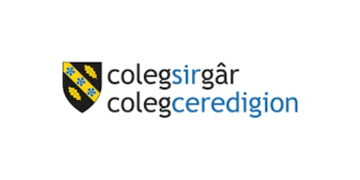The four exam boards responsible for GCSEs and A-levels in England have launched an independent review of exam cheating.
Sir John Dunford, the former general secretary of the Association of School and College Leaders, will chair the malpractice commission on behalf of the Joint Council for Qualifications, which represents exam boards AQA, Edexcel, OCR and WJEC.
It follows a rise in the number of penalties imposed on school staff and pupils for cheating last year.
Figures released by the exams regulator Ofqual revealed that the number of school staff penalised for helping students cheat in exams increased by around 150 per cent in 2017, though part of this rise has been put down to a change in the way exam boards record penalties.
Overall, 895 penalties were issued to school and college staff for malpractice during GCSEs and A-levels in 2017, up 535 on the 360 penalties issued in 2016.
The number of penalties handed out to pupils also rose in 2017, up by 535 or 24.5 per cent, from 2,180 in 2016 to 2,715 this year. Penalties given to schools and colleges decreased over the same period, falling by 35 or 22.5 per cent, from 155 in 2016 to 120 in 2017.
It also follows action over high-profile leaks of exam materials.
Earlier this year, Ofqual announced that computer science GCSEs will be assessed purely on exams until 2020 after tasks from the test were leaked online.
Further allegations of malpractice have also come to light during this year’s exam series.
For example, last month, Ofqual acknowledged “allegations of malpractice or wrongdoing” following allegations on social media that elements of the Edexcel C4 maths paper was leaked online. The investigation into the incident is ongoing.
However, exam boards insist the review has not been prompted by any specific incidents or trends.
“We would like to emphasise that this is not in response to any particular issue or concern,” said Mark Bedlow, OCR’s director of regulation and business performance.
However, Bedlow did express concerns about an increase in the use of technology by young people, which he claims offers “more opportunities” for pupils to cheat.
His claims are backed up by Ofqual malpractice data. Last year, the vast majority of penalties issued to candidates were for possession of a mobile phone in an exam.
The Dunford commission will begin its work in September and operate until next spring.
”The integrity of the exam system is of vital importance to everyone involved, but especially to the young people taking exams on whose grades their futures depend,” said Dunford.
”We will seek evidence from a wide range of stakeholders to ensure that all views are represented and I hope that the recommendations of the commission will play a significant part in reducing malpractice at all levels.”
Exam boards already run a centre inspection service, which conducts unannounced visits to schools and colleges to check on the security of exam materials, but leaders admit they must do more.
Michael Turner, director general of the JCQ, said exam malpractice is “relatively uncommon”, but its impact can be “significant”.
”Exam boards have robust procedures in place but there is more they and the whole industry can do to deliver improvements.”








Just that it’s so quaint, this idle talk of “exam boards”. They formed a twentieth century phenomenon that was finally finished off in 2001.
The four organisations that set papers for public examinations are awarding bodies.